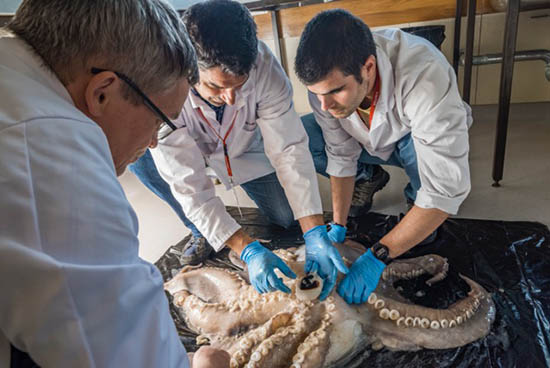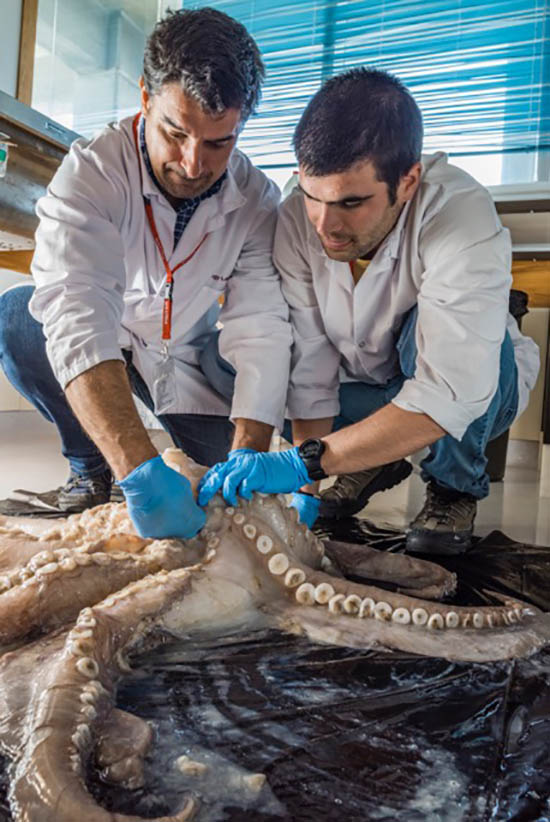
A team of researchers from the Faculty of Science and Technology of the University of Coimbra (FCTUC) and the National Institute of Water and Atmospheric Research (NIWA) of New Zealand analyzed the largest octopus ever found in Antarctica.
the giant octopus megaleledone sevenbos was captured aboard the ship Antarctic Discovery, in the Sea of Dumont D'Urville (Antarctica), last January, where Portuguese student José Queirós was collecting samples for his master's thesis in ecology.
After being immediately frozen, the octopus was only recently analyzed, in New Zealand, by José Xavier (supervisor of José Queirós and coordinator of Antarctic Science projects at the University of Coimbra) and colleagues from NIWA.
At 115 entimeters in length and 18,5 kilos in weight, this octopus is considered the largest individual ever captured in Antarctica. Until now, only cephalopods of this species have been found up to 90 centimeters.

The young polar scientist at UC, José Queirós, says that this discovery was a surprise, because “my work focuses on studying the role of Cod from Antarctica in the Antarctic food chain and understanding what they eat. To appear on a hook an octopus of this size was something that no one expected».
For his part, José Xavier, project coordinator, highlights that «this discovery, within an international project that involved scientists from Portugal, New Zealand, Japan and Australia, is another piece of the puzzle to help us understand what exists in Antarctica, one of the marine areas of the planet that is very little known. We collect samples from the octopus to better understand its biology, habitat, physiology and what it eats».
The octopus was donated to the prestigious Te Papa Museum in Wellington, New Zealand.
Author: Cristina Pinto (Press Office – University of Coimbra)
Science in the Regional Press – Ciência Viva


















Comments